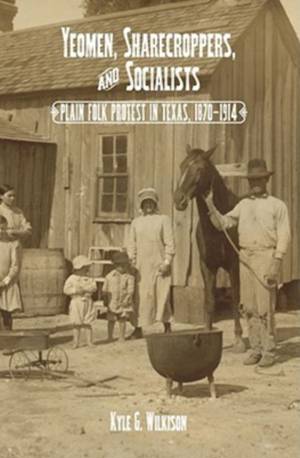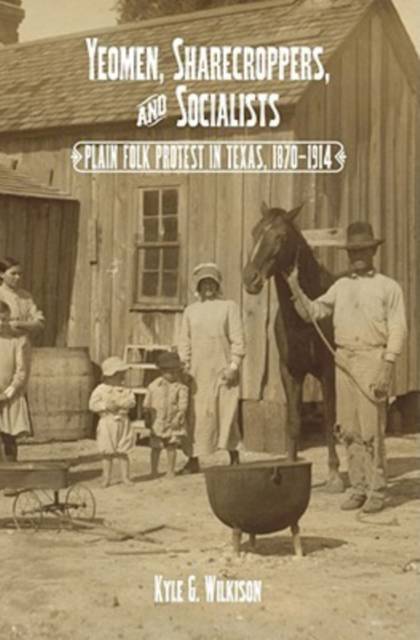
- Afhalen na 1 uur in een winkel met voorraad
- Gratis thuislevering in België vanaf € 30
- Ruim aanbod met 7 miljoen producten
- Afhalen na 1 uur in een winkel met voorraad
- Gratis thuislevering in België vanaf € 30
- Ruim aanbod met 7 miljoen producten
Zoeken
Yeomen, Sharecroppers, and Socialists
Plain Folk Protest in Texas, 1870-1914 Volume 30
Kyle G Wilkison
€ 61,45
+ 122 punten
Omschrijving
As the nineteenth century ended in Hunt County, Texas, a way of life was dying. The tightly knit, fiercely independent society of the yeomen farmers--"plain folk," as historians have often dubbed them--was being swallowed up by the rising tide of a rapidly changing, cotton-based economy. A social network based on family, religion, and community was falling prey to crippling debt and resulting loss of land ownership. For many of the rural people of Hunt County and similar places, it seemed like the end of the world. In Yeomen, Sharecroppers, and Socialists historian Kyle G. Wilkison analyzes the patterns of plain-folk life and the changes that occurred during the critical four decades spanning the end of the nineteenth and the beginning of the twentieth centuries. Political protest evolved in the wake of the devastating losses experienced by the poor rural majority, and Wilkison carefully explores the interplay of religion and politics as Greenbackers, Populists, and Socialists vied for the support of the dispossessed tenant farmers and sharecroppers. With its richly drawn contextualization and analysis of the causes and effects of the epochal shifts in plain-folk society, Kyle G. Wilkison's Yeomen, Sharecroppers, and Socialists will reward students and scholars in economic, regional, and agricultural history.
Specificaties
Betrokkenen
- Auteur(s):
- Uitgeverij:
Inhoud
- Aantal bladzijden:
- 313
- Taal:
- Engels
- Reeks:
Eigenschappen
- Productcode (EAN):
- 9781603440653
- Verschijningsdatum:
- 28/10/2008
- Uitvoering:
- Hardcover
- Formaat:
- Genaaid
- Afmetingen:
- 160 mm x 231 mm
- Gewicht:
- 612 g

Alleen bij Standaard Boekhandel
+ 122 punten op je klantenkaart van Standaard Boekhandel
Beoordelingen
We publiceren alleen reviews die voldoen aan de voorwaarden voor reviews. Bekijk onze voorwaarden voor reviews.











